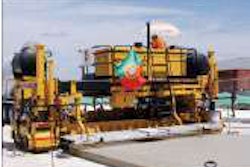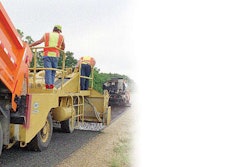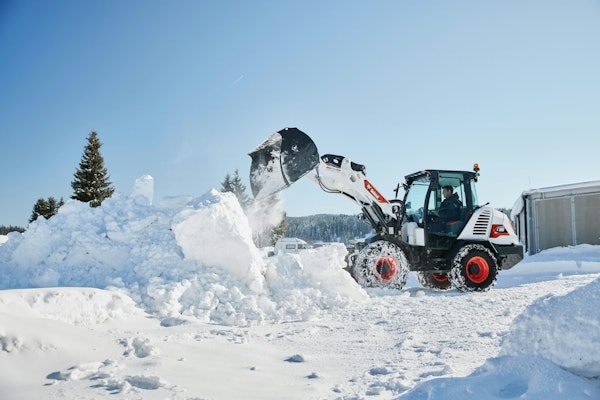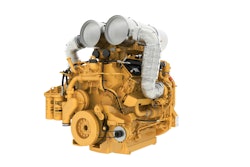Here’s to the Blademen, and Whoever Comes Next
Launching a new generation of motor graders a few years ago, Caterpillar had a dozen or so magazine editors manually operate the machines in a demonstration area . . . and in less than an hour we created a patchwork quilt of moguls and gashes and other signs of man’s inhumanity to soil.
 [email protected]
[email protected]Walking across it was enough to damage one’s kidneys. Driving a wheeled machine across it was an invitation to permanent neck and spine damage. Then our hosts engaged the automatic grade-control systems on the machines and turned us loose again. Suddenly, we were all relatively competent blademen. Each of us was able to push through the lunar landscape we had just built and leave a relatively level path in our wake.
As I watched my editorial colleagues work, I felt a pang of sadness. I was thinking of the grizzled motor grader operators I’d met over the years, of watching them work their miracles, twitching eleven different levers at just the right time as the machine traversed winter-ravaged roads, magically erasing bone-jarring potholes and washboards, leaving behind an impossibly level and smooth driving surface.
In my mind, those operators were uniquely gifted, set apart from the rest of us mortals by an odd blend of vision, coordination and maybe balance that let them create a perfect surface with a machine that should have been impossible to operate. I was seeing the end of their era. It was like reading an homage to the cowboys of the late 19th century, or the fur trappers of the early 19th century.
In a few years, when the last of the great blademen retires, rural road maintenance will be in the hands of people not much more skilled than me.
This is perhaps a good thing for rural road agencies and for contractors, but it seems like a sad milestone for humanity. A human skill that once set a precious few apart from the rest of us, that defined a special dimension of human capability, is going to disappear just as the hard-riding cowboys and wilderness-exploring fur trappers disappeared.
For some reason I remembered a senior engineer I met at my first construction equipment press conference in the 1980s. He headed a team that created a new product line from a blank sheet of paper. He was still excited about it. So I was taken aback when he said he was retiring soon.
“Why?” I asked.
There were no groundbreaking new machine projects left to be done, he said. We were entering an era of caretaker engineering, tweaking this, painting that.
But by the end of that decade, we saw breathtaking advances in hydraulics, among other things. Next decade, it was electronics and computer controls. In the one after that it was merging electronics and hydraulics and exploring the potential of GPS and laser guiding systems. Along the way, the number of machine categories mushroomed, and the number of models within those categories grew exponentially.
Which brought us back to the Caterpillar demonstration, and the motor graders that even I could operate successfully.













